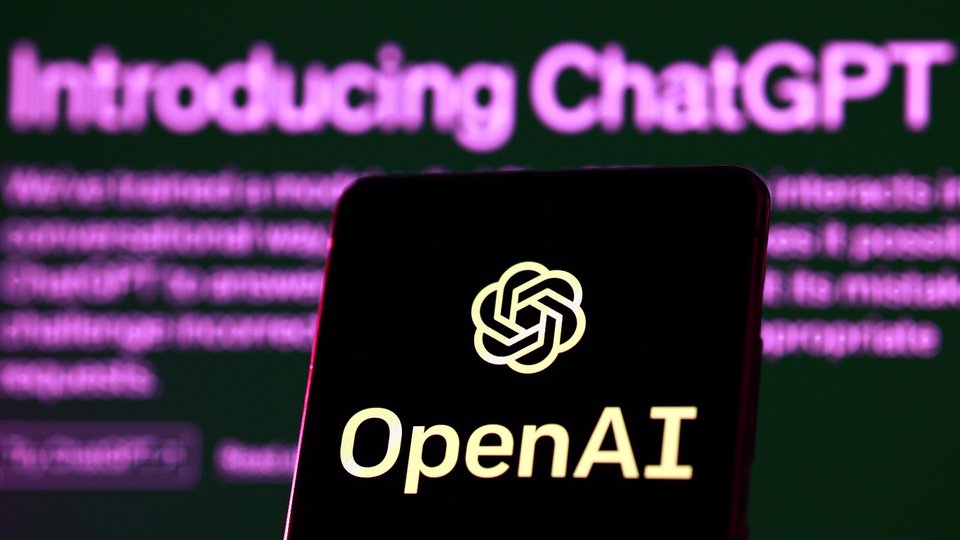Commentary
AI’s full impact on OOH entertainment has barely begun
Artificial intelligence will change every aspect of operating an entertainment enterprise, with many tools yet to be developed.

May 1, 2023 by Kevin Williams
The out-of-home entertainment industry is a barometer of many trending technologies and applications. While the media is only just waking up to the opportunities and concerns of artificial intelligence, the application of this and the other aspects of "big data" has already been felt in the entertainment sector.
But the revolution has barely begun.
First learn the language
While many people are more familiar with the term "artificial intelligence," the reality of the revolution we are seeing explode into the public domain is regarding AI research that has achieved "artificial general intelligence," known as AGI — the ability of specialized programming to achieve intellectual tasks, surpassing the capabilities of humans trying to achieve the same.
And just to make the definition process even more complicated, social media giant Meta has championed adoption of its own interpretation with its "generative artificial intelligence," known as GAI, tool sets which they will employ to create targeted advertising.
Many of the abilities we are seeing being applied regarding AGI are achieved through specialist algorithms. Data capture, through what is called machine learning (deep learning algorithms) that consumes data towards achieving specified tasks.
These algorithms teach other algorithms to achieve the allotted task better and better through numerous iterations, finally achieving a level of ability through the resulting intelligent agent that surpasses the capability of an average human to achieve the same activity.
Every operational aspect will change
It is the ability of these intelligent agents or smart actors that are employed towards activities such as calculating operational procedures from factory logistics to website creation, and charting trends and requirements, from restaurant ordering to theme park attendance and staffing needs.
All of this is achieved through feeding on big data, gathered through the constantly connected Internet of Things. The process is normally described as collecting its information from new data sources combined with online search algorithms.
Regarding the collection and usage of data in the entertainment facility business, we need to look towards the migration of guest access to our venues and how the process has been simplified and expanded.
Cashless payment has been in adoption for the amusement and entertainment sector for many decades. The likes of TimeZone, one of the largest family entertainment chains, along with Dave & Buster's, and several Japanese amusement sites such as from Sega and Namco, were the first to employ this tech back in the 1990s.
But it took the global health crisis to force the sector to fully embrace the application. We have seen smart card payment, as well as smart phone payment apps, deployed across the international venue business.
The value of this integrated chip card top-up approach, or the use of a specific smartphone app, offers a level of convenience that defines the concept of frictionless. But this also acts as a greater agent to facilitate play, removing many of the problems of dealing in currency and achieving a higher spend and a better perceived value from the transaction.
With these cashless payment applications, we have seen the deployment of smart registration systems, collecting valuable guest information to facilitate their group reservation needs and requirements, during their visit. These tools have collected user data for marketing and promotional means and, with the correct levels of data protection, have now employed this big data towards the improving and enhancing of the entertainment experiences. They are used to chart the popularity of games, prizes and menu items, and remove much of the guess work from the process.
The new front of house
Regarding the enhanced guest experience, the guests' details can now be employed for targeted promotions based on experiences they may prefer based on their habits. Their age and interests shape the entertainment visit and are linked to promotional materials, specially tailored to the guests' preferences, encouraging repeat visitation.
The latest of the smart payment platforms, such as from Embed, Intercard, Semnox Solutions, Nayax Tigapo and Sacoa Cashless, look towards including greater customization for the operator to collect and utilize data. But this also allows the guests to modify the way they interact with the entertainment towards "having it their way."
It is this pool of "big data" that the operator can mine, collecting the vital information regarding guest interaction. But not all operators are able or willing to navigate the mountain of data, and new tools have sprung up to sift, sort and better represent this sea of information.
Platforms such as Connect & Go, Roller, Active8, Center Edge Software, Party Center Software and Ideal One Amusement Software are just some of the providers of solutions regarding the point-of-sale support, integrated guest online reservation, group ticketing, membership schemes and follow-up marketing.
Along with the most important element in all this being the enhanced guest experience. With tools employing cloud-based data mining, a greater marketing and promotional presentation can be created and disseminated through social media apps. All these agents supplying detailed guest analytics that can go towards feeding that "big data" collection pool.
Social media will lead
As noted earlier, social media giants are looking at AI and GAI towards the creation of customized and targeted advertising — that will only appear for your unique circumstances and interests — generated from mined data. It is this kind of focused advertising that all forms of social media and commercial sales will employ to achieve maximum engagement with an audience bombarded with targeted advertisements and promotions. In this sea of data mining, entertainment venues will have to be even more sophisticated to catch the attention of the new customer base.
A furious arms race between search engine providers has broken out to offer chatbot features. The use of OpenAI application programming interfaces generation tools have seen Google launching Bard and Microsoft incorporating versions of ChatGPT into its Bing search engine, and others — all with varying levels of success in attempting the creation of detailed answers to questions.
But it is beyond the bounds of the written text that these OpenAI AGI powered applications are growing, shaping image and video creation. With the supply of a few prompts by a user, and the AI, like with app Dall-E, the process creates sophisticated images in many styles — based both on their algorithms but also on the data pool of original images harvested from online sources.
These AI-created images have grown in sophistication and have now migrated to the creation of rudimentary videos, evolving in their levels of quality. The use of AI-based images is causing questions regarding the ownership of the work created from harvesting data.
Already we are seeing this AI-created material being gradually employed in reviews and marketing for entertainment venues. These automated reviews, however, have the danger of only including information sourced from the limited accessible "big data" links, leaving a lot to the imagination in accuracy or readability. This is best illustrated by CNET, which abandoned plans to roll out AI-created editorial after initial trials failed due to numerous missed errors.
The danger exists for these images created by AI to inaccurately represent the intended information — by fault of prompt or source material ("garbage in, garbage out"). Those sites that use AI-based guest facing services run the danger, as with all technology at an early stage of adoption, of it failing to meet the original needs outlined.
The vital need for a human in the loop has never been greater, no matter the opportunities and savings promised by the tech.
Next week, we'll explore the application of AI to create truly frictionless and immersive experiences in the entertainment sector.
(Editor's note: Extracts from this blog are from recent coverage in The Stinger Report, published by Spider Entertainment and its director, Kevin Williams, the leading interactive out-of-home entertainment news service covering the immersive frontier and beyond.)
About Kevin Williams
Along with advisory positions with other entrants into the market he is founder and publisher of the Stinger Report, “a-must-read” e-zine for those working or investing in the amusement, attractions and entertainment industry. He is a prolific writer and provides regular news columns for main trade publications. He also travels the globe as a keynote speaker, moderator and panelist at numerous industry conferences and events. Author of “The Out-of-Home Immersive Entertainment Frontier: Expanding Interactive Boundaries in Leisure Facilities,” the only book on this aspect of the market, with the second edition scheduled for a 2023 release.
 ChatGPT
ChatGPT Grok
Grok Perplexity
Perplexity Claude
Claude






